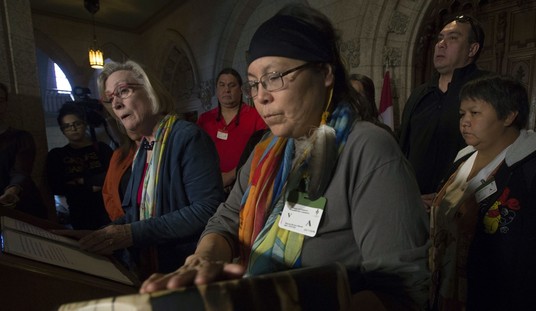Iran has sentenced an American businessman seized a year ago and his elderly father, along with a Lebanese U.S. resident, to 10 years in prison on charges of spying.
Siamak Namazi, a businessman who was raised in the United States and had been working out of Dubai, was arrested in October 2015 while visiting a friend in Tehran. Namazi hails from a prominent Iranian family; his father used to be governor in Khuzestan province and a UNICEF official, and the family immigrated to the U.S. in 1983.
Baquer Namazi, 80, was arrested in Tehran in February and taken to the city’s notoriously brutal Evin prison.
“Now both my innocent son Siamak and my Baquer are in prison for no reason. This is a nightmare I can’t describe,” Baquer’s wife, Effie, wrote on her Facebook page then, adding that he has “conditions which requires him to take special heart and other medicine.”
Iran’s Fars News Agency reported today that six individuals were sentenced to 10 years “for spying and cooperating with the U.S. government against Iran” — including the Namazis and Nizar Zakka, a permanent U.S. resident of Lebanese origin.
Siamak Nazami’s brother, Babak, issued a lengthy reaction that he said went against his mother’s wishes but was necessary as Iran handed her father “practically a death sentence and it will be a criminal act by me, his only able son, not to fight for my father’s life and freedom as well as that of my brother.”
The ruling hit the family with “utter shock and dismay.”
Babak Namazi said the sentenced followed “one court session of a few hours for each of them” with the details of the charges still a mystery. Iran released a propaganda video showing Siamak Namazi as a captive just days before the sentence was announced, a video that “pains us immensely,” Babak said. “The same can be said about the articles full of fabrications and baseless accusations being posted on various websites for the past year depicting my father and brother as saboteurs and infiltrators. A one-sided attack on my innocent brother and father who cannot defend themselves goes on with impunity, no accountability and against all standards of decency.”
He stressed that at Baquer age and in his condition “it is highly doubtful that my father will survive any time in prison let alone a 10-year unjust prison sentence.”
Iran said that Namazi wasn’t included in the January hostage swap with the Obama administration because his seizure was “not political.”
Zakka, a D.C. information technology and economic development expert who visited Tehran at the invitation of the Iranian government to speak at a conference on women’s entrepreneurship and employment, was seized as he tried to catch a return flight in September 2015. The State Department even helped fund his trip, according to his colleagues.
The Lebanese-American is secretary-general of the Dupont Circle-based IJMA3 group, which lobbies for the information and communications technology industry in the Middle East. Zakka earned degrees from the University of Texas after graduating from the Riverside Military Academy in Gainesville, Ga., in 1985. He used to work as a software engineer at contractor Kellogg, Brown & Root in the early ’90s.
Zakka’s mother passed away in July, not getting to hold her son one more time. She had pleaded to Ayatollah Ali Khamenei in a letter and video to free Nizar. “My health continues to deteriorate, and every night I can not sleep and I keep awake, pray and pray to God for the release of my son,” she told the Supreme Leader. She stressed that she did not know her “number of remaining days,” and would accept even a temporary visit.
That request was not granted. Just days after her death, Iran announced an indictment against Zakka.
Friends of Zakka — including former Riverside Military Academy president Col. James Benson (USMC ret.), Army Major Gen. John Peabody (ret.), and former Assistant Secretary of the Army Paul Woodley — wrote Secretary of State John Kerry a letter in April, asking the country’s top diplomat to “mount a humanitarian effort” to free the IT expert.
“Nizar is a man without country when it comes to consular assistance. He is a U.S. permanent resident, yet holds a Lebanese passport. The Lebanese government has failed to take up his interest; the Lebanese consul in Tehran has not visited him nor communicated to the Iranian government on his behalf,” they wrote.
“Nizar was traveling in Iran with the knowledge and approval of the U.S. State Department, and his trip was funded with grants from your agency. We believe that the State Department has a moral obligation to help Nizar in his time of need,” they continued. “Time is of the essence… failure to take action promptly on his behalf puts his health and wellbeing at dire risk.”
State Department press secretary John Kirby told reporters that month that “U.S. lawful permanent residents are not U.S. passport holders and must travel on the passport of their nationality.”
“The Immigration and Nationality Act prevents us from providing consular assistance to non-U.S. citizens,” Kirby said. The State Department later amended that to clarify they could offer assistance, but did not elaborate on what that might be.
The State Department’s reaction to the sentences was limited to the Namazis, with spokesman Mark Toner saying the U.S. was “deeply concerned” about the turn of events.
“We join recent calls by international organizations and UN human rights experts for the immediate release of all U.S. citizens unjustly detained in Iran, including Siamak and Baquer Namazi, so that they can return to their families,” Toner said. “We also respectfully underscore the importance of Iran cooperating with the United States to determine the whereabouts of Mr. Robert Levinson, who went missing on Iran’s Kish Island in March 2007. As President Obama stated last January, we will not rest until the Levinson family is whole again.”
Iran took another American in July: Robin Shahini of San Diego, who has a history of criticizing Iran’s human-rights abuses and was visiting family in the country.
House Foreign Affairs Committee Chairman Ed Royce (R-Calif.) said that “once again Iran has made a mockery of its own legal system in convicting wrongfully detained Iranian-Americans.”
“It appears the trials violated every basic international standard – carried out in secret with no transparency, no evidence, and no representation. They were a complete and total sham,” Royce said.
“Siamak Namazi and his father Baquer are suffering in jail in Tehran today for one reason, and one reason only: because they dared to promote closer U.S.-Iran relations. This unjust conviction should be a grave warning to anyone seeking to do business with Iran.”











Join the conversation as a VIP Member